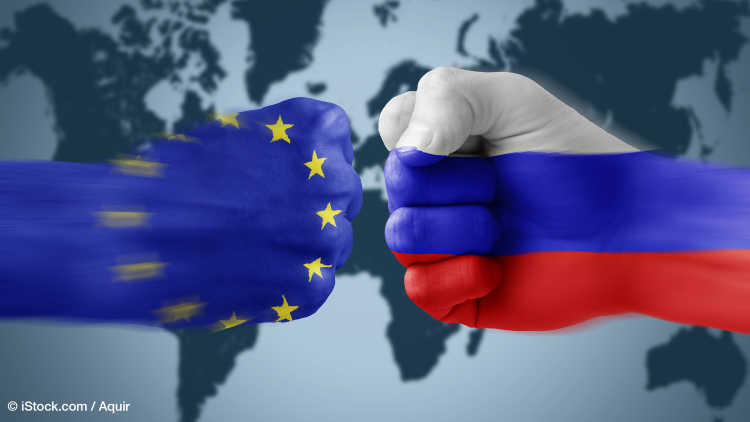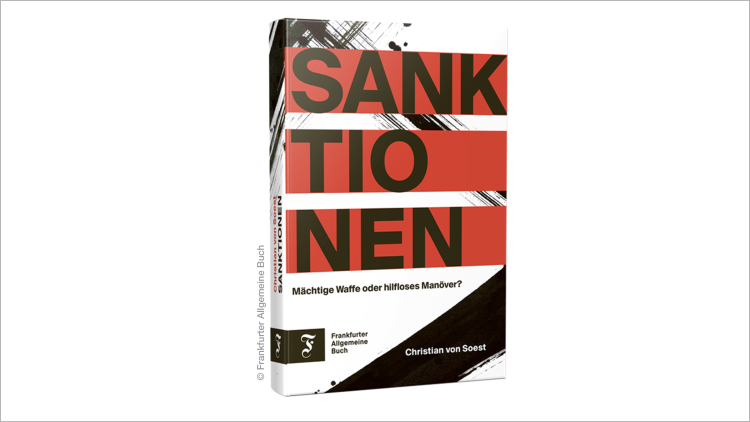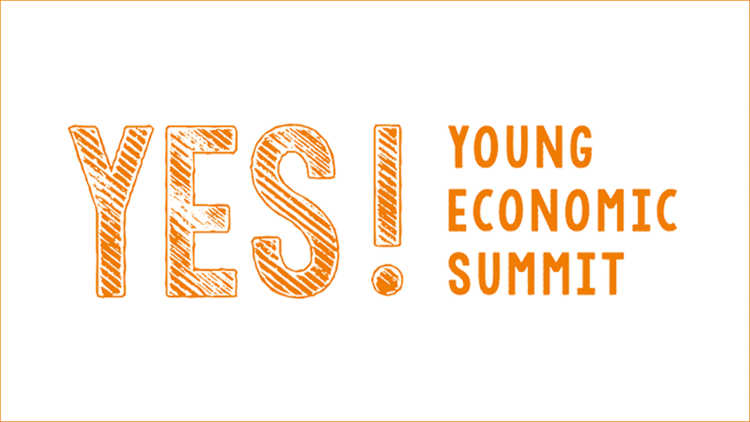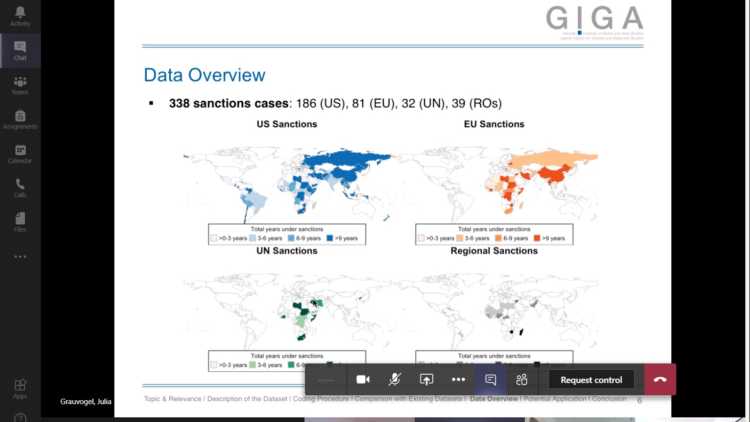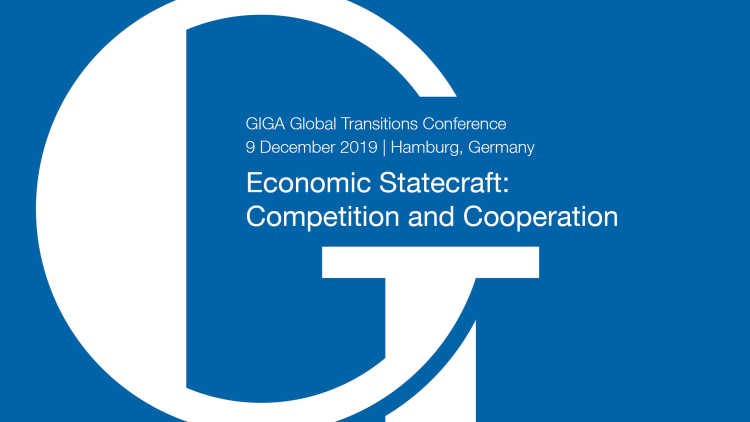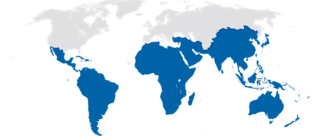Experts
Contact
Current Research
Countries and Regions
- International Sanctions
- Foreign Policy Analysis
- Political Psychology
- Leadership Trait Analysis
- International Security
- Sub-Saharan Africa
- Middle East and North Africa (MENA)
- Lebanon
- Iran
- Economic statecraft
-
Peace and conflict
-
Global security
-
Foreign policy
-
Middle East
-
Middle East and North Africa (MENA)
-
International sanctions
-
Persistence and change of authoritarian regimes
-
Legitimation of authoritarian regimes
-
Simbabwe
-
Burundi
- International sanctions and interventions
- Authoritarian regimes
- Legitimation of political regimes
- Foreign policy and development policy
- Southern Africa and East Africa
- South Africa
- Botswana
- Zambia
- Zimbabwe
- Kenya
In Brief
Research Projects
Events
President (ad interim)
Prof. Dr. Sabine Kurtenbach is President (ad interim) of the GIGA.
Regional Institutes
Notification
Sign up to receive email notifications about GIGA activities
Social Media
Follow us
